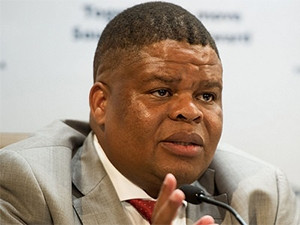
As the South African government mulls regulating social media, analysts point out that although the move is possible, it is not practical.
Speaking on Sunday during the Justice, Crime Prevention and Security Cluster brief, minister of state security, David Mahlobo, said government is contemplating regulating the social media space as the threat of fake news rears its ugly head in SA.
He reportedly said government will soon discuss how best to regulate social networks and will take on practices like 'photoshopping' which misrepresent actual events or scenes.
Imminent
From a legal perspective, John Giles, a legal advisor at law firm Michalsons, says it is possible for the government to regulate social media use.
He notes that one of the laws government wants to use to regulate social media is already before Parliament. Sections 16 and 17 of the Cyber Bill will make many social media posts a crime, says Giles.
In December, government approved the introduction of the wildly criticised Cyber Crime and Cyber Security Bill after growing criticism regarding the lack of decisive policy and control over cyber crime.
"The other law through which the government seeks to regulate the social media is through the Films and Publications Board. One of our attorneys is in Parliament today trying to stop this. The other is Hate Bill or Hate Crimes and Hate Speech Bill," Giles notes.
"The regulation of social media is generally bad, but it can be good to stop things like revenge porn and racism. However, the impact on the freedom of expression will be severe and that will not be good for South Africa's democracy," he adds.
According to Giles, Mahlobo and the president want the Cyber Bill to be enacted as soon as possible because it gives them significant power. "People need to act now to stop the Cyber Bill being enacted in its current form."
Illegal links
World Wide Worx MD Arthur Goldstuck points out that regulating social media is certainly possible but not practical.
"It also will not achieve the aim for which it is intended. Fake news is being created primarily on anonymous Web sites, rather than on social media itself. Social media is being used to share and spread it, but can you make a link illegal? In written law, perhaps, but in practice it becomes impossible to police."
Nonetheless, he says, the need is to extend existing law into social media. "In other words, harassment, threats and defamation are illegal in conventional law so, technically, they should be illegal on social media. The challenge is for the police and courts to have both the knowledge and the will to apply it. We rarely find both in place."
Goldstuck believes the only advantage of regulating social media is to ensure conventional law is also applicable online. However, he is of the view that creating new regulations would largely serve political causes.
Open communication
ICT veteran Adrian Schofield concurs, saying it is possible for the state to regulate social media. He adds social media is already the subject of much regulation, as are all forms of media.
"In a democracy, one hopes the regulation is intended to facilitate open communication and freedom of speech while protecting the vulnerable from criminal activity. In an extreme case, such as in a dictatorship, the state can control all forms of media to ensure citizens receive only information sanctioned by the state, as is the case in North Korea," he notes.
"We have to recognise the growing problem of fake news, and we do need to ensure it does not derail our adherence to the principles established in our Constitution."
However, he points out there has to be a better alternative to deciding how to counter the lies than having the security apparatus of an increasingly paranoid government decide what is fake and what is not.
"Existing laws about libel, privacy, pornography and the like should be better enforced instead of introducing draconian regulation."
In reaction to Mahlobo's statement, advocacy group Right2Know says: "This is a clear move by state 'securocrats' to try clamp down on freedom of expression and increase their powers to censor the Internet."
The group says Mahlobo's statement comes on the back of a range of existing, deeply problematic censorship policies, including the Film & Publication Board's Internet censorship regulations, the draft Hate Speech Bill, and the new Cyber Crimes Bill, which would "hand the keys of the Internet" to Mahlobo.
Regulation of social media already exists, says Right2Know. Platforms like Twitter and Facebook have added self-regulation measures, to empower users to take action against online harassment and cut down on the spread of fake news and propaganda, it says.
Meanwhile, City Press reports communications minister Faith Muthambi met Russian deputy minister of telecoms and mass media Alexey Volin to discuss "best practices" for the media, in Pretoria on Monday.
Muthambi reportedly said the platform between the two countries' departments of communications should be used to share "best practices in the area of communications and media".
In Russia, journalists who do not toe the Putin-line are prosecuted, notes City Press.
Share